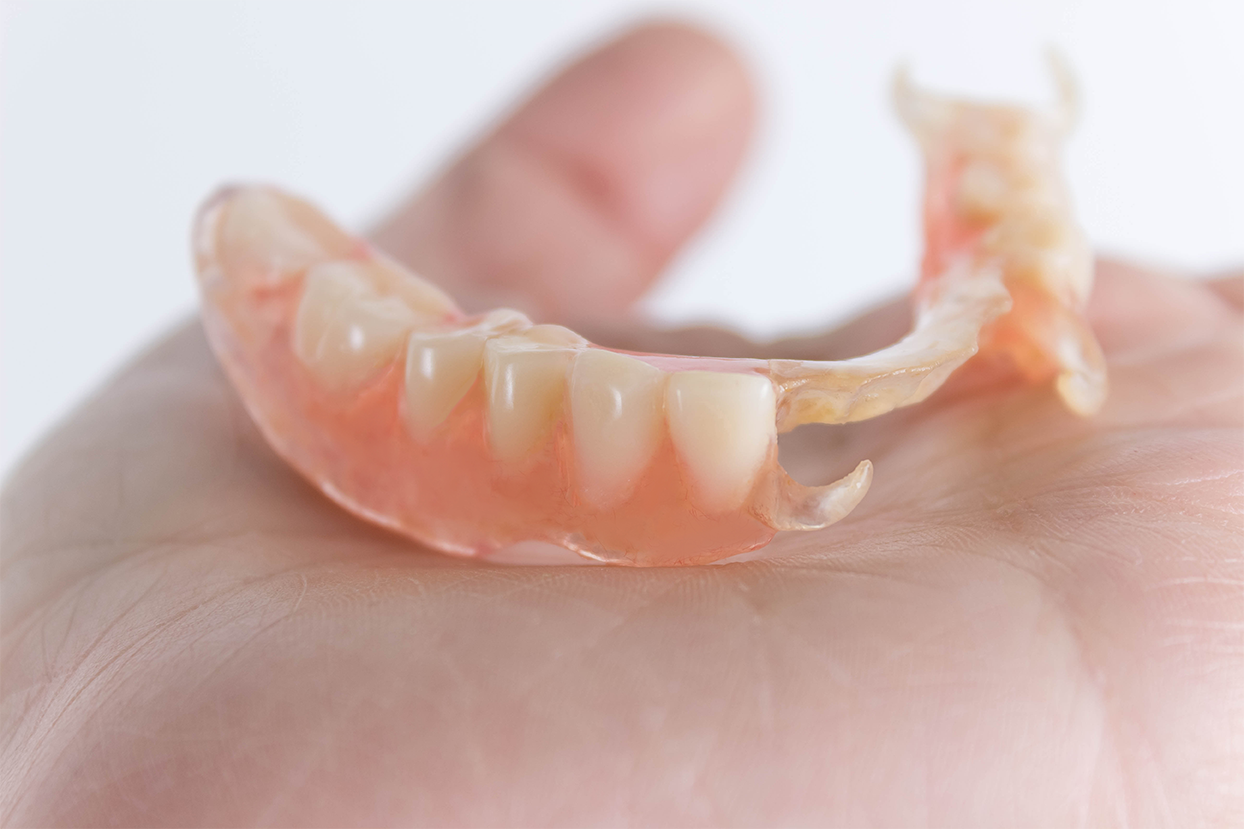Acrylic Dentures – Affordable And Adjustable
Have Always Wanted
little as £4/day.

Aesthetic Appeal and Affordable
Acrylic dentures are a popular choice for those seeking to replace missing teeth. Known for their aesthetic appeal, realistic false teeth appearance, and affordability, these dentures can provide a comfortable fit. In this post, we explore acrylic dentures, their life expectancy, care and maintenance, and also considerations for first-time users.
Description of Acrylic Dentures
Acrylic dentures are made from a lightweight, durable plastic resin, giving them a natural appearance. They can be complete (replacing all teeth) or partial dentures (replacing only a few). Acrylic dentures are custom-made to fit snugly over the gums, making them comfortable and secure.

Life Expectancy
On average, acrylic dentures last 5 to 10 years, but their lifespan can be influenced by individual hygiene practices and maintenance. They may require more frequent replacement than metal dentures due to wear.
Care and Maintenance
Proper care includes:
- Daily Cleaning: Brush daily with a soft brush and mild denture cleaner.
- Avoid Hot Water: Never soak acrylic dentures in hot water to prevent warping.
- Soaking Solutions: Use a denture-soaking solution to keep them clean.
Replacement Indicators
Signs that it may be time to replace acrylic dentures include:
- Discomfort or Pain: If they cause irritation, a replacement may be needed.
- Visible Wear: Cracks or chips can affect functionality.
- Fit Changes: Loose dentures should be assessed by a dentist.
Considerations for First-Time Users
For those new to dentures, acrylic options may be suitable for individuals with allergies, as they generally cause fewer reactions. However, those with poor bone density may benefit from more flexible materials that adapt better to their jaw structure.
Fitting and Creation Process for Older Patients
The fitting and creation process for acrylic dentures generally involves:
- Initial Assessment: This includes time in the chair for impressions and fitting.
- Modern Imaging: X-rays and 3D imaging are often used to enhance the process, reducing overall chair time.
- Adjustment Visits: Follow-up appointments may be needed for comfort adjustments.
Pros and Cons
Advantages:
- Cost-effective and aesthetic.
- Easily adjustable.
Disadvantages:
- Less durable and prone to wear.
- Requires careful handling.
You may also be interested in finding out more about metal dentures or flexible dentures. If you are looking for general guidance and advice on dentures we would recommend that you take advantage of our free online consultation service or talk to one of our dental team at the Marble Arch and Waterloo clinics.


